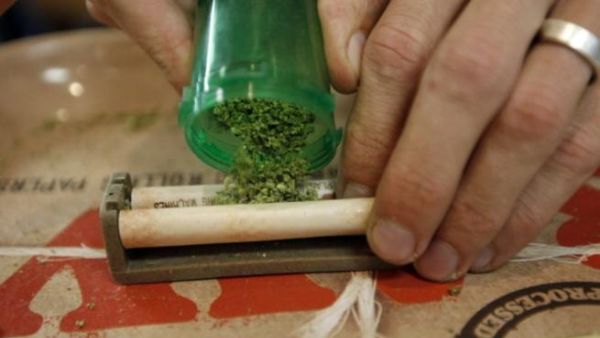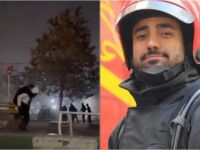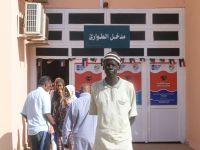Cannabis farmers in the Baalbek-Hermel area are doubtful that the government's initiative to allocate LL45 billion annually for five years to support the planting of sugar beet, building of modern irrigation systems and boosting of animal husbandry will prove effective.
The decision was based on the suggestion of the ministerial committee assigned with finding alternatives to planting cannabis in the area following a confrontation earlier this summer between the security forces and farmers in the village of Yammouneh, 5 km west of Baalbek. After the confrontation, Interior Minister Marwan Charbel visited the village and promised to compensate farmers and provide them with an alternative crop.
Cannabis is planted in the western side of the Anti-Lebanon mountains, on planes stretching for 60 kilometers in length and 30 kilometers in width, starting from the city of Baalbek and reaching the village of Al-Qasr on the northern border with Syria.
The ministerial committee took a month to reach a decision; meanwhile, the Bekaa's cannabis farmers were able to harvest around 80 percent of the season's crop and transfer it to secret locations where the drug will be extracted and stored until it is sold to dealers, who export the cannabis and resell it at a much higher price.
There is a lack of optimism among the majority of farmers that the money the Cabinet has allocated will be enough to put an end to cannabis production, especially since no other crop provides the same financial returns as the illegal drug.
The farmers are also skeptical about the government's initiative because there are no committees that actually represent them, such as cooperatives and unions that would guarantee the money allocated by the government is being spent in a transparent way.
The head of the agricultural cooperative in Hermel, Mohib Hamadeh, cites as an example that 70 percent of licenses to plant tobacco in the Baalbek-Hermel area are owned by officers and doctors from whom farmers rent land.
Hamadeh also argues that aid for fuel given at the beginning of the winter season goes to the pockets of people who are backed by the government. He notes that the only development project started in the area was a UNDP initiative that began in 1994. He says that $25 million was spent and the project ended in 2000 without providing any alternative crops.
Baalbek-Hermel MP Assem Qanso also voices skepticism after the country's successive governments' failed to develop a comprehensive agricultural policy that provides farmers with aid and guidance as well as assistance in marketing their products.
Qanso adds that agricultural production should be linked with the agricultural industry to ensure farmers have a market for their produce. The MP contends that an agricultural credit bank should be founded alongside a comprehensive plan to develop the various economic sectors in the area. Among the tasks that should be undertaken are the extraction of oil, the building a dam on the Assi River and the completion of the Baalbek-Hermel highway.
He also says that the current suggestions by the government are mere headlines that will not be implemented, as has happened on previous occasions when committees were formed, development programs were announced and nothing was achieved.
The MP adds that the initiative will not be implemented especially because it is planning to support sugar beet, which is not appropriate for the area’s soil. The soil, Qanso says, is mostly rock layers and has only a 20 centimeter deep top layer that is suitable for agriculture. He adds that sugar beet needs large amounts of water which are unavailable.
In conclusion, Qanso asks: "Why doesn't the government buy the cannabis crop from farmers, as in countries such as Turkey and Morocco, and use it for medical purposes?"
For his part, Agricultural Minister Hussein Hajj Hasan says that there are no real alternatives to planting cannabis because no other crop can provide the same rate of return. However, he argues that there are alternative agricultural policies which would support crops, other than cannabis, that are already found in the area.
Hajj Hasan says that there has been a historical neglect of the agricultural sector by the Lebanese government, but that the ministry has been addressing this neglect for around 15 years. He adds that one should not only consider the economic aspect of agriculture in Lebanon but also the social aspect of the enterprise, since around 1.4 million Lebanese people live off of it.
Hajj Hasan believes that the main problem with the agricultural sector in Lebanon is the high cost of production which affects the ability of Lebanese agricultural products to compete in local and international markets.
To confront this, a plan to improve the agricultural sector was put in place for 2010 to 2014, which would increase the sector’s contribution in local production; provide around 10,000 job opportunities annually in the sector; ensure a percentage of self-sufficiency in main strategic crops so that the country would not have to import; and also ensure the safety of agricultural production.
Hajj Hasan adds that the ministry's budget increased from LL41 billion in 2009 to LL100 billion in 2012, and that a number of strategic projects were launched to support different kinds of crops in cooperation with the European Union and international agricultural organizations, increasing the amount to LL175 billion annually. Add to this the LL45 billion which the Cabinet decided to allocate to the agricultural sector and the amount spent to support the sector adds up to LL220 billion.
This money will be used to develop grain crops, fruit trees , especially olives, river fish, cow husbandry, agricultural exports, agricultural cooperatives, the production and marketing of olive oil, the building of agricultural roads and the security of the sector against natural disasters.
It will also be used to increase and improve oversight of agricultural production as well as support sugar beet production and the building of reservoirs to store water.
Hajj Hasan refuses to comment on the suggestion that the government buy the cannabis crop from framers and use it for medical purposes.
"The study that the ministry made on industrial hemp, which is used to produce thread and paper, proved that there is no economic benefit from this agricultural enterprise because the area in Lebanon where hemp would be planted would only provide work for two months per year," he argues.
"It also proves that Lebanon cannot produce industrial agricultural products such as sunflower seeds."
Hajj Hasan clarifies that it is possible to plant sugar beet in the northern Bekaa and on lands where water is available. The ministry will also address the problem of water, and it has allocated funds to construct reservoirs and modern irrigation systems for around 100,000 dunums.
The minister says he is convinced that farmers will abandon planting cannabis when alternatives are provided. As for those with influence who benefit from planting the drug, farmers can file complaints to the ministry which will then punish the violators, he adds.








